I wrote this after spending a week at the Chateau du Feÿ & interviewing a few of the founding members of Feÿtopia.
Date founded: spring 2020
Location: Villecien, France (~1.5 hours from Paris in the Burgundy region)
Rented or owned: owned
Space/amenities: Le Chateau du Feÿ consists of 28 bedrooms, most with ensuite baths. The grounds include a hot tub, sauna, orangerie, terrifyingly deep well, Sonic Sphere, forest, cave, pool, gym, industrial kitchen. There is a minivan (the Cosmobile) for common use and several bicycles.
Operating model: coliving space (~5 months a year), venue for rent (~7 months a year)
Governance: doocracy, with a corporation having ultimate authority over decision-making
Last year at Burning Man, a giant sphere sat perched in the middle of the desert. LED lights swam across its surface, reminding me of a video I saw once of an octopus dreaming. Dozens of people lay on a net suspended in the middle of the structure. Fifty two speakers arrayed around the sphere gave the lucky few inside a 360° surround sound experience.
It was a triumph of art, music, and spectacle. And it was a project that began with group of people who formed a commune in a French castle during COVID.
This is the story of Feÿtopia: a collection of humans who come together for a few months a year to experiment with different ways of living and build a brighter future.
Origins
The Chateau du Feÿ was built in the 1650s on top of a hill overlooking Villecien, a village of ~400 people in the countryside outside of Paris. In the 80s, it hosted a cooking school, but then sat vacant for nearly 10 years until it was purchased in 2017 by Jessica Flore Angel, an architect from Paris. She saw its potential to become a ‘living laboratory’ for a number of issues she’d become passionate about (more on that in a future post).

For the first few years, the castle served mostly as an event space for weddings, corporate retreats, and an arts festival - until COVID put a stop to all that.
With the pandemic setting in in March 2020, Jess invited 10 friends to retreat and isolate at the chateau. After a few months of brainstorming, the group announced the creation of Feÿtopia: ‘a collective of artists, entrepreneurs, activists, academics and technologists, drawn together by our desire to experiment with the way we live, work and play.’

Over the subsequent years, Feÿtopia evolved into a community of people who live at the castle in the ‘off season’, roughly November-April, for anywhere from a few days to the whole season. Community members are encouraged to co-create the experience of living at the castle: meals, parties, and improvements to the grounds can be planned by anyone.
When Feÿtopia disbands each year, Feÿtopians disperse around the world, many to other coliving houses. The castle once again becomes an events/festival venue for the high season.
Inner workings
‘As a teenager, I couldn’t understand why adults were so boring. They have no friends, they spend all their time working - I was incredibly unimpressed with adults. Feÿtopia offers a vision of adulthood where people are intellectually, spiritually and emotionally engaged in appreciating ideas, each other, with repertoires of adult friendships woven into your day.’ Ed Cooke
People find their way to Feÿtopia largely by word of mouth, though there is an open application on its website. Roughly a third of residents stay for the whole season, a third come for about a month, and the rest are short term visitors. Rent varies according to how long you stay, with a higher nightly rate for short term guests. Scholarships exist for those who wouldn’t otherwise be able to afford a room, and some guests are invited on fellowships.
There is no application criteria or set profile for the people who are drawn to Feÿ. In the week I spent at the castle, I met professors from major universities, musicians, a woman who makes erotic jewelry, entrepreneurs who have started some of the world’s most valuable companies, a jiu jitsu champion, and a host of people who can be best described as living a portfolio life. When a friend commented on the impressive intellect of the average Feÿtopian, he was told that the 2022 season had included two Nobel Laureates in residence so really, 2023 was a step down. Pets are discouraged, but allowances are made if they are really cute.
The castle consists of 28 bedrooms split between the main structure, a cottage and a farmhouse - the latter two of which were ruins when Jess took over the property. The rooms in the main house range from opulent, high-ceilinged rooms with elegant moldings and chandeliers to cozy nooks that were once servant’s quarters - meaning there’s a range of affordability, with rooms ranging from €30/night (in a smaller room committed to longer term) to €150 euro/night (in a larger room staying for a short period of time).
Feÿtopia can be seen as a hybrid hospitality business, in the sense that short term guests enjoy a hotel-like experience: you arrive to a clean and well made bed, and breakfast and lunch are cooked by staff. But dinner is cooked by the residents each night, and guests are expected to sign up for three cooking or cleaning shifts a week. Far from a chore, these ‘work shifts’ are often livened up by music. I experienced a singalong cooking session and Disco Dishwashing, which we previously talked about here.
Volunteers within the community also coordinate bulk purchase and delivery of produce from local farms and supermarkets. I appreciated a ‘chocolate library’ that was kept well stocked despite my personally limitless appetite for dark chocolate. A snack bar with fruit, fresh baked bread, granola, and teas is kept stocked 24/7.
Communication happens through a Signal chat, where people also coordinate things like grocery runs and pickups from the train station in the Cosmobile, the communal van.
Most people work on their own projects - their day job, writing a book, recording an album - but everyone is invited to organize activities throughout the day. In the short week I spent at Feÿ, these included daily yoga sessions; 5pm HIIT training at the ‘Greek Gods and Goddesses Gym’ (GGGG); life mapping led by an executive coach; lightning talks (5 min talks on anything), which ranged from a talk on building an AI assistant based on the community’s Signal chat to an exploration of how and why one might BASE jump; a chorale where people were invited to harmonize in the pitch black caves beneath the castle; a visit to another local commune, La Bascule, housed in a military barracks and largely living off of donated/salvaged food and furniture; a walk to a nearby field where there were ponies; and a cave rave.
As someone who has lived in and visited dozens of communal homes around the world, one of the things that impressed me most about Feÿtopia was how everyone seemed to chip in to the management of the community. If there weren’t enough volunteers for dinner, someone (not always the same person) would put out a call in the chat to make sure that people stepped forward. There is no concierge or front desk: members of the community step up to show new folks around. No one is paid to lead training sessions or workshops. The Greek Gods and Goddesses Gym has been assembled over several years by members of the community buying or building equipment.
Though Feÿtopia takes place in a season when there are fewer events, it’s not a money maker for the castle: operational costs are about equal to the rents paid by residents. But it is a key part of the anthropological experiment that Jess is stewarding at Chateau du Feÿ: can an ephemeral community of mostly global nomads contribute to the land, heritage, and local community that surrounds this 17th century French Castle?
While it has only been around for four years, the impact of Feÿtopia has reached well beyond the walls of the castle. The Chateau du Feÿ creates ~€500k worth of business for local vendors a year, and employs about a dozen people full time. Feÿtopia and the other initiatives incubated at the castle have helped fund the restoration of the chateau and opened it up to the public for the first time in its five centuries of existence. Feÿtopians run Les Amies du Feÿ, a non-profit that organizes training on “ecosystems, permaculture, and self-sufficiency, as well as educational programs in partnership with the low-income neighborhood of Joigny [the municipality] and local associations.”
At least one other property, a manor house in England, has begun a program inspired by Feÿtopia to make use of the castle in the low season and help revitalize the local economy.
And beyond its economic impact, Feÿtopia has been a catalyst for cultural projects and dialog. It has been reversing brain drain by drawing leaders in business, academia, and the arts to a corner of rural France that has been experiencing economic and population decline since the 1970. That spherical concert hall I experienced at Burning Man (technically a Kugel Auditorium but popularly known as a Sonic Sphere) went on to be a featured art exhibit at the Shed in New York City, with over 30,000 visitors - including artists as diverse as Cara Delevigne, Ethan Hawke, Marina Abramovic, Trinidad James and Tim Ferriss - buying tickets to a new kind of collective audiovisual experience.
In conclusion
‘I think sometimes what’s off-putting about a lot of communities is it’s presented as some kind of cult-like secret that you have to earn entrance to. And it’s like - no, you just live with your friends. And be kind to them.’ - Will Zeng
My week at Feÿtopia was as close to the utopian ideal of community living as I’ve experienced. The chateau and community function remarkably well: things stay reasonably clean, food is great, community members are fascinating and care about each other. Doocracy seems to be thriving. It was also just a ridiculous amount of fun.
Not everyone can or will want to make it to a castle in the French countryside, but the world is full of grand old buildings in need of revitalization. I don’t mean to downplay the immense amount of effort that Jess and other Feÿtopians have put into creating the peculiar magic that happens at Chateau du Feÿ, but I do believe many people could live this way. They just don’t realize it’s an option.
Jess purchased the Chateau for €1.4m, and had to invest another ~ €750k before it could be opened for events. She was able to borrow 90% of the cost from lenders. I hope that Chateau du Feÿ serves as an inspiration and example for just how much can be done with ~€2m.
Further reading/viewing:
Feÿtopia and Three Letters by Susanne Aichelle on Vimeo
Bridging Communities at Feÿ with Jess Angel
Extitutional theory at Feÿ and Embassy with Jessy Kate Schingler

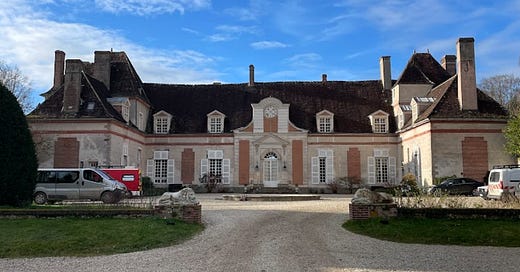


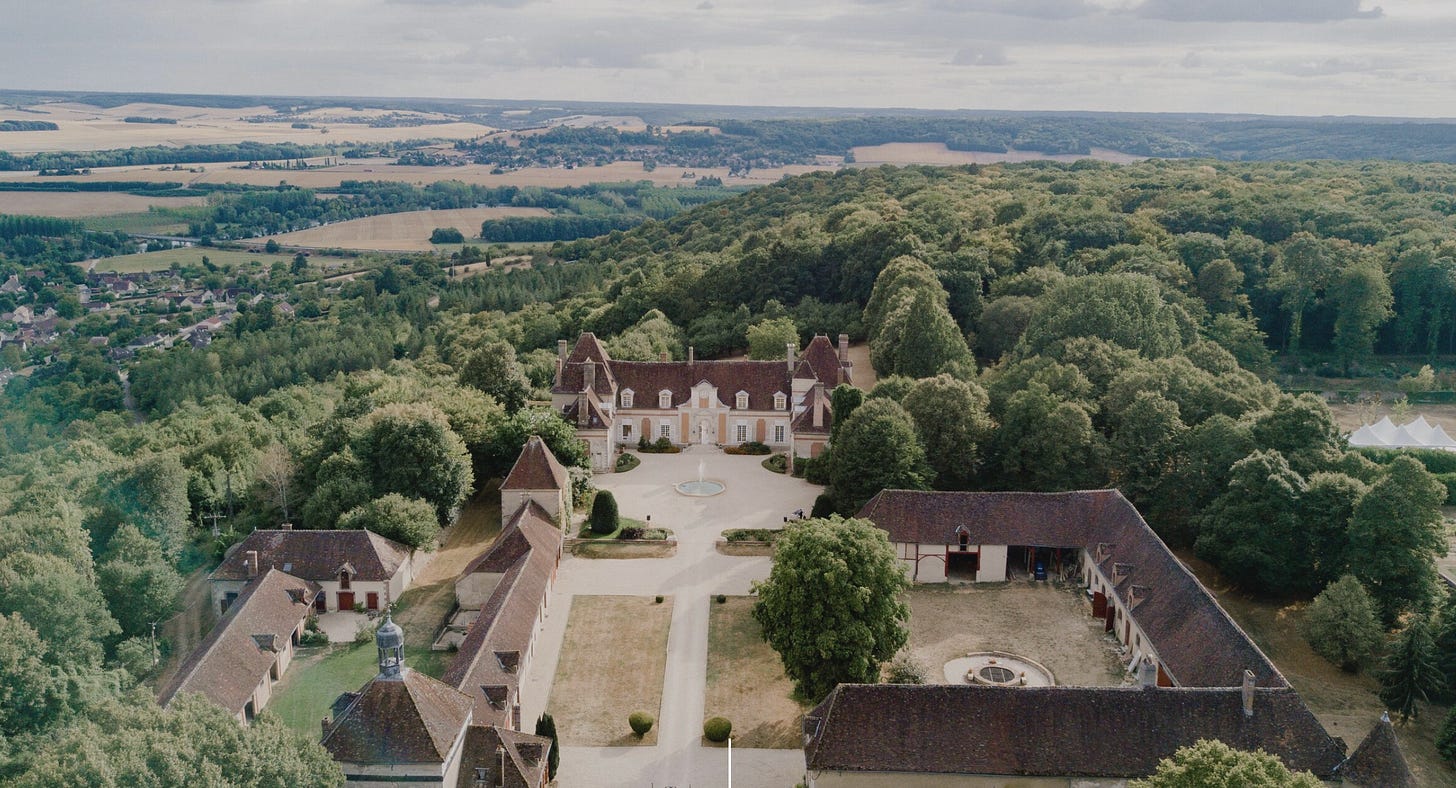
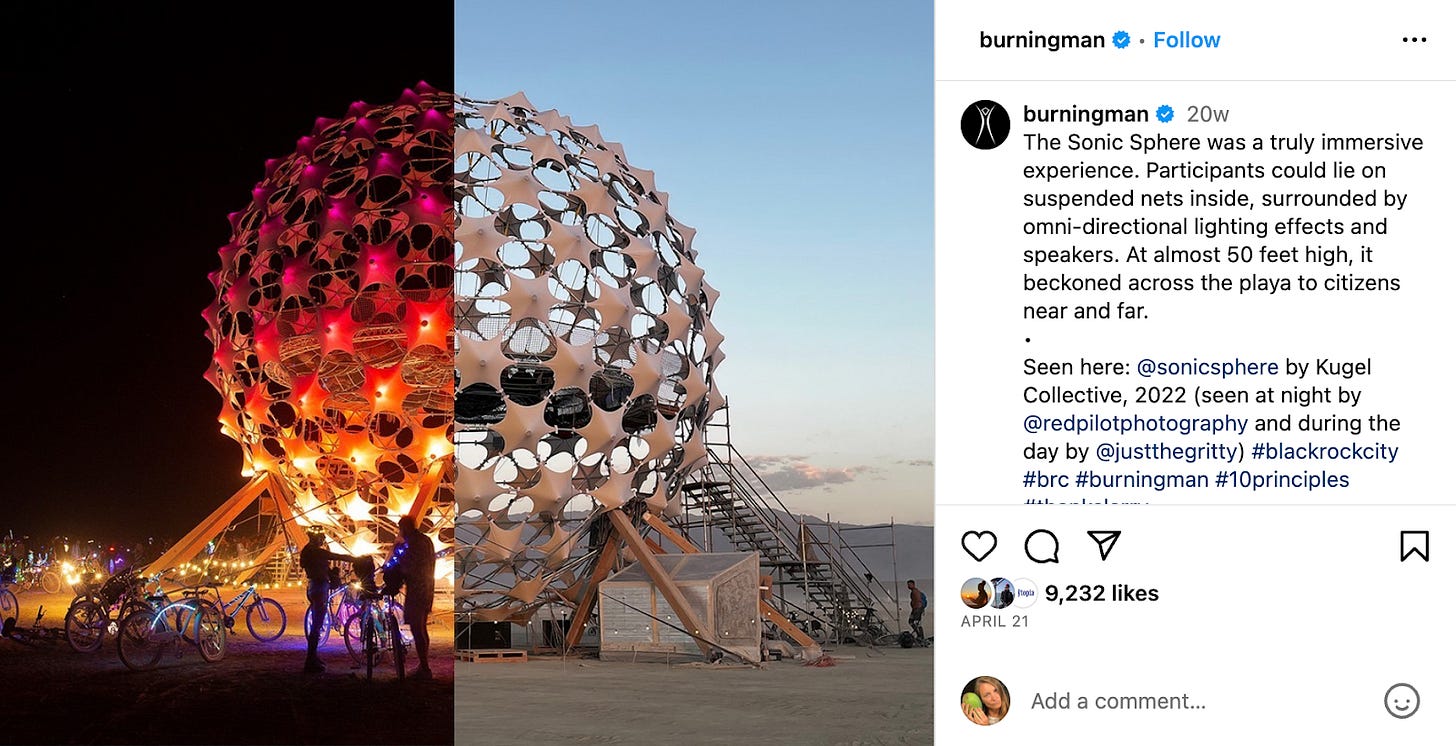


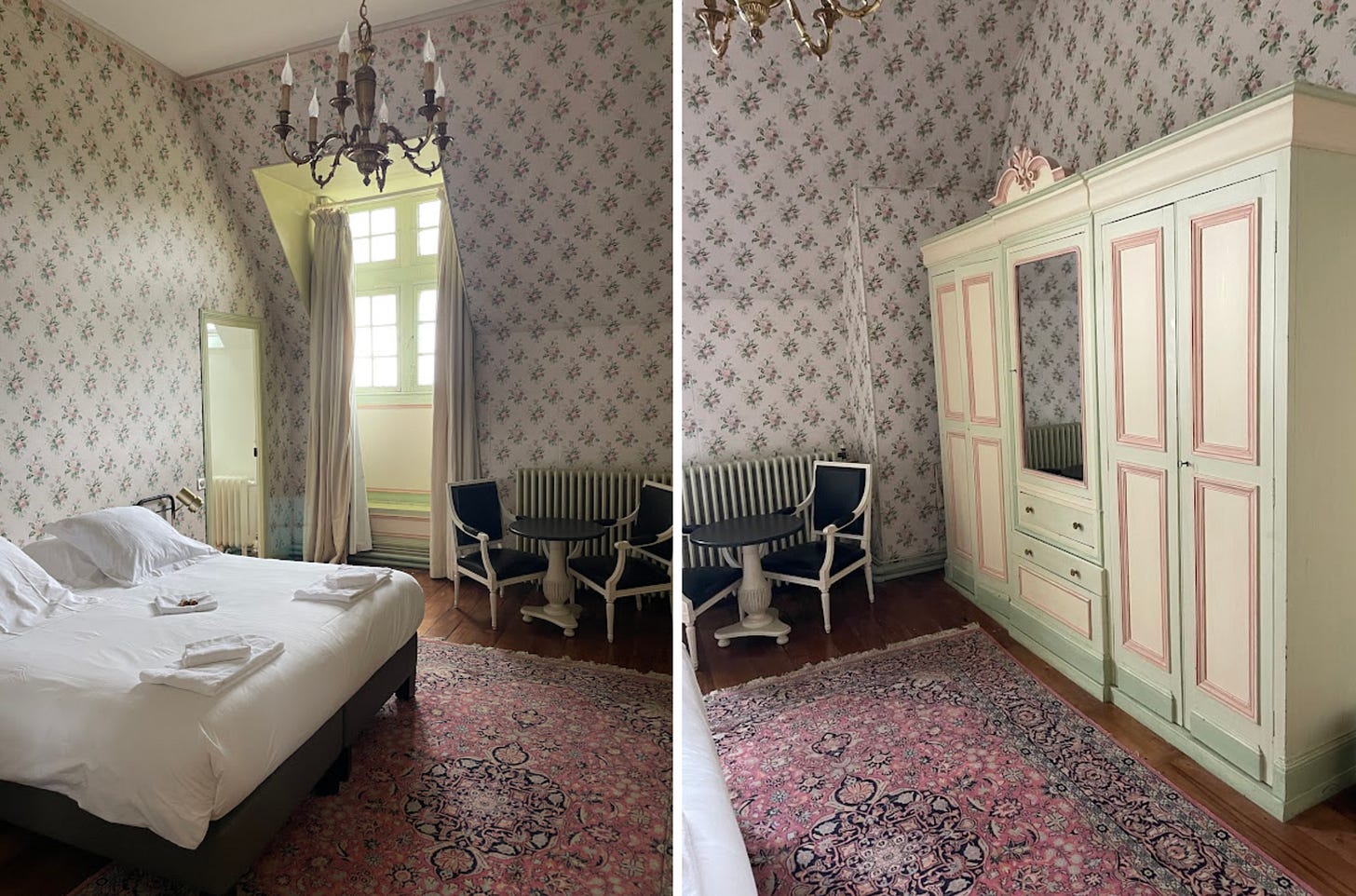
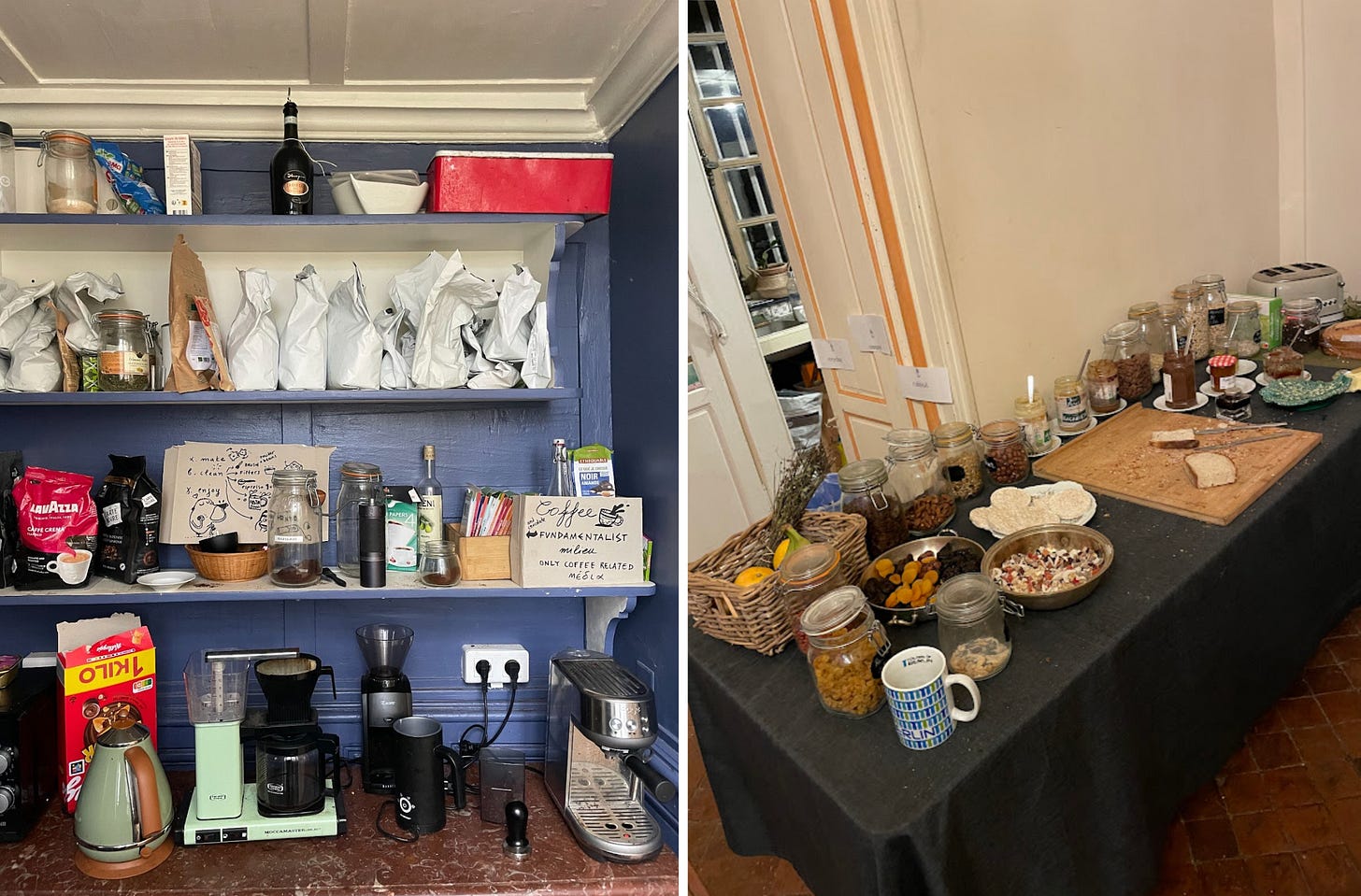




Love it! I'd be curious to know more about the relationship between the staff and the itinerant residents of Feytopia, and what role staff play in decision making processes.
> She was able to borrow 90% of the cost from lenders. I hope that Chateau du Feÿ serves as an inspiration and example for just how much can be done with ~€2m.
The ability to buy with a 10% down payment is a crucial detail here. In my experience not achievable by most people/groups on most properties that aren't very typically house shaped in the US or the western European countries I've spoken to potential collaborators about, unless the entire operation can be sustained profitably as a business.